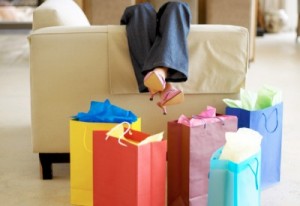The basic purpose of shopping, is to purchase items which you need. The fundamental item which validates your shopping is money.
Therefore, if you have money, you can purchase whatever you want to. There are some people who show good habits and mental health acts when they are shopping, and there are those who find it totally impossible to control themselves.
People who are not addicted to shopping are meticulous in doing so. What they do prior to shopping is, they make a list of the items they need, and they see if it fits with their budget. They also set a spending limit, so that they would not exceed their budget.
In addition to this, people who are not addicted to shopping have a good sense of what is necessary, and what is not, so they shop in line with that. These set of people are very structured when it comes to spending.

For those who are addicted to shopping, their case is totally different. First off, they do not make concrete plans as regards shopping. They are moved by the items in the store where they are going to.
They do not have a budget for their spending, and a good number of times, they go for what is necessary.
Usually, when they are done shopping, and they are going through the items at home, they discover they had left out an important item, and at this point, their money would have been exhausted.
The downside of shopping addiction is, if care is not taken, this set of people can go to the length of stealing money or defrauding people, so that they can satisfy their addiction needs.
Shopping addicts are so unpredictable, one point they want to buy something, and the next, they have changed their mind. This happens basically because they do not know what they want.
To wrap it up, people who have shopping addiction tend to pick up quarrels and disagreement with the shop attendants, and the reason for this is not far-fetched, it is because their minds are not usually made up.



